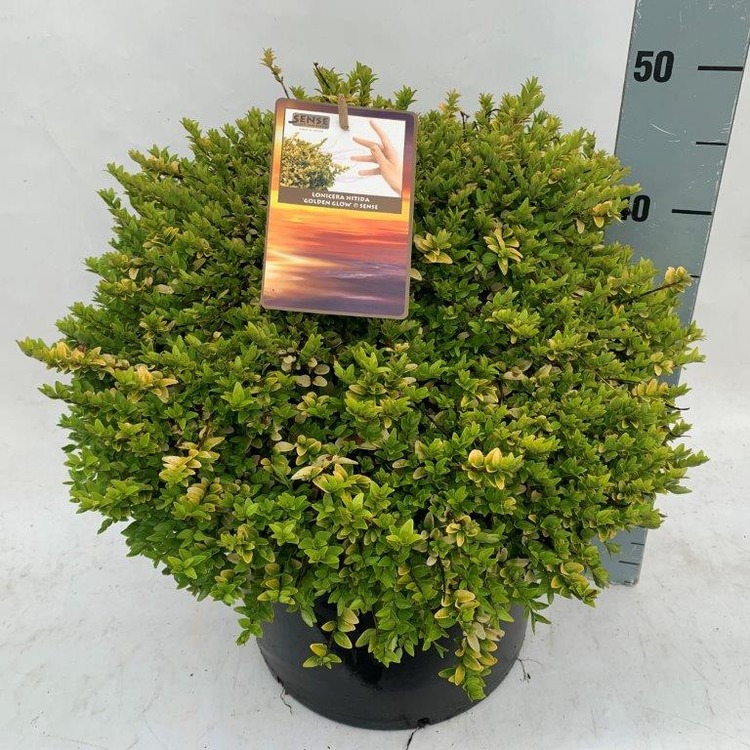
Lonicera Nitida 'golden Glow' ® Fleur
Lonicera nitida is an evergreen shrubby honeysuckle, native to China. A popular hedging plant, it's hardy and quick-growing, excellent for screening and is easy to grow. Recently its botanical name has changed to Lonicera ligustrina var. yunnanensis but it's generally sold under its old name, which is easier to pronounce and remember.
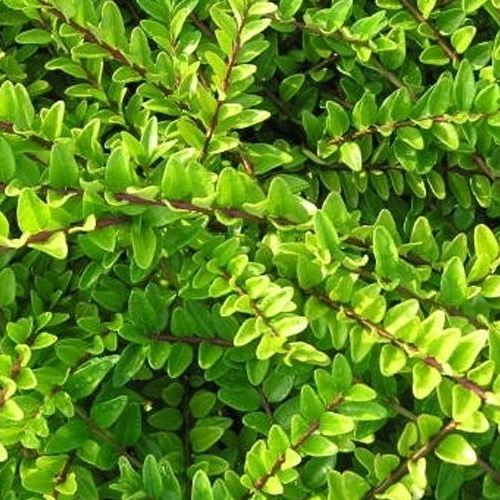
Lonicera nitida tube (15/20) Greenleaf Nurseries
Lonicera nitida 'Red Tips' Common name: Red Tips Box Honeysuckle. Pronunciation: lon-ISS-er-a ni-TI-da. Family: Caprifoliaceae. Genus: Lonicera. Type: Broadleaf. Native to (or naturalized in) Oregon: No. Broadleaf evergreen shrub, new growth is a brilliant burgundy, but this fades to a red tinge on glossy green leaves.
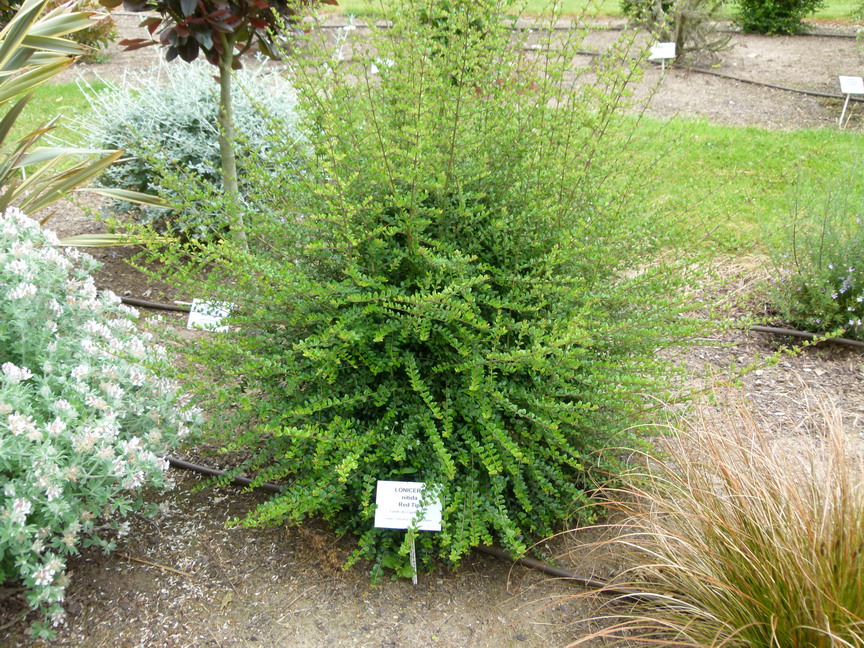
LONICERA nitida Red Tip Chèvrefeuille arbustif Red Tip Pépinière en ligne de Kerzarc'h
Lonicera nitida 'Lemon Beauty' Common name: Lemon Beauty Box Honeysuckle. Pronunciation: lon-ISS-er-a ni-TI-da . Family: Caprifoliaceae. Genus: Lonicera. Type: Broadleaf. Native to (or naturalized in) Oregon: No. Broadleaf evergreen shrub, variegated, 3-6 ft (0.9-1.8 m) high, dense mounded habit. Leaves small with cream-yellow margins when in.

Lonicera subspicata Wikipedia
Le Lonicera nitida est une espèce très recherchée pour la confection de bonsaï, et plus particulièrement le cultivar 'Twiggy', qui s'y prête encore mieux que les autres. Lonicera nitida 'Baggesen's Gold' - (edgeplot / flickr.com) Cultivars Lonicera nitida 'Aurea' : port dressé, feuillage panaché vert et jaune

Lonicera nitida ‘Tidy Tips’
Physical characteristics. , bushy shrub growing to 2m tall and 2m wide dependant on pruning. , ovate to broadly ovate and produced in pairs. Flowers are tiny, and tubular. Most people miss seeing them as they are so small. They are followed by spherical glossy berries in summer. to semi-shade and humus-rich, fertile, well-drained soil.

17 Best images about Bodembedekkers on Pinterest Trees, Tuin and Lavandula angustifolia
Lonicera nitida is a popular variety native to China that grows glossy, dark green foliage and produces small, scented flowers during the spring with small berries thereafter. Prized for its speedy, bushy growth, this evergreen plant generally only grows between 1 to 3 metres tall, which is ideal for a hedge plant.

Lonicera Nitida ou Chèvrefeuille boule 40/60 cm en pot de 10 L Arbustes et arbres d'ornement
Characteristics of Lonicera Nitida. Body Size: It is a small, evergreen shrub that normally grows to a height of 2-3 feet (0.6-0.9 meters) and a width of 3-4 feet (0.9-1.2 meters). It has.

LONICERA nitida 'Scoop' Chèvrefeuille boule à feuilles de buis pépinières Lepage Bretagne
Lonicera nitida is an evergreen Shrub growing to 3 m (9ft) by 3 m (9ft) at a fast rate. See above for USDA hardiness. It is hardy to UK zone 7 and is not frost tender. It is in leaf all year. The species is hermaphrodite (has both male and female organs) and is pollinated by Insects. Suitable for: light (sandy), medium (loamy) and heavy (clay) soils and prefers well-drained soil.

Chèvrefeuille arbustif Scoop (Chalons) Lonicera nitida à port en boule compact
Lonicera nitida is a species of honeysuckle native to China. It is a fast-growing, evergreen shrub that can reach up to 3 m (10 ft) in height. The leaves are opposite, oval-shaped, and have a toothed margin. The flowers are small, white, and borne in clusters. The fruit is a small, black berry.

Lonicera Tidy Tips VERDENA 💚 Magzinul tau de plante 💚
La Lonicera nitida It is an evergreen shrub of great beauty, ideal to have in the gardens or in pots, since it adapts very well to different locations. Unlike other species of the genus, this one is much easier to give it the shape you want so that it can be had as a shrub plant or as a small tree.
LE JARDIN DES GRANDES VIGNES Buis et autres topiaires...
Lonicera Scoop is a beautiful evergreen shrub that is stays compact, about 100 cm high and 100 cm wide. This makes it a great plant for a low hedge or for in a pot on the balcony or terrace. Also very beautiful in the shrub border. This Lonicera has small leaves and grows naturally in a neat, rounded shape.

Lonicera nitida 'Scoop'® Vente Chèvrefeuille boule à petites feuilles de buis
Glowing in the garden, Lonicera nitida 'Baggesen's Gold' (Box Honeysuckle) is a dense, spreading, evergreen shrub with long, arching stems clothed in small, ovate, golden-yellow leaves that turn chartreuse in the fall. Tiny cream flowers appear in spring, which are eventually followed in fall by purple berries. Fast-growing, this Box Honeysuckle is quite versatile.
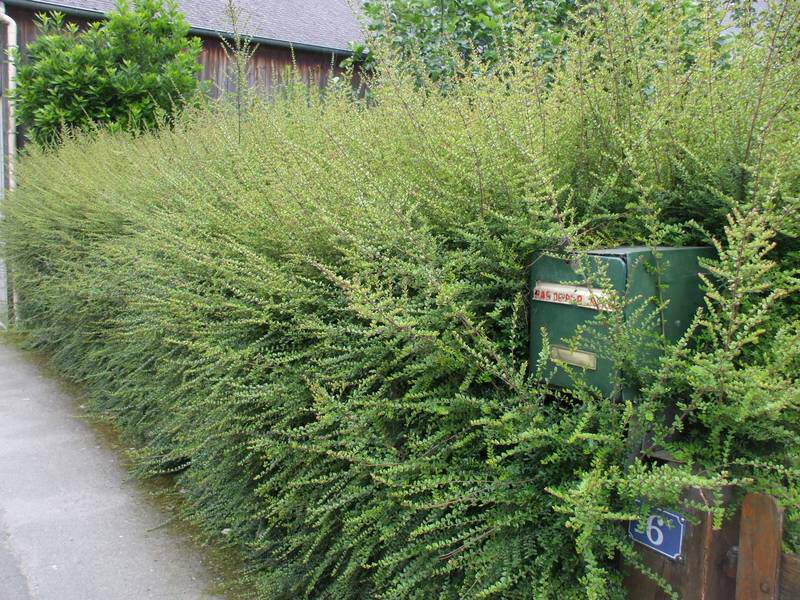
LONICERA nitida Chévrefeuille Arbuste
Pronunciation: lon-ISS-er-a ni-TI-da Family: Caprifoliaceae Genus: Lonicera Type: Broadleaf Native to (or naturalized in) Oregon: No Broadleaf evergreen shrub, 4-5 ft (1.2-1.5 m) high, dense. Leaves opposite, simple, ovate to roundish, 6-16 mm long, entire, rounded at base, glossy ( nitida: glossy) dark green, 1 mm petiole.

Lonicera tidy tips Art topiaire Ripaud Pépinières
Lonicera nitida is a fast-growing broadleaf evergreen shrub with white flowers in spring followed by black fruit. It can grow 4 FT - 6 FT - wide, 4 FT - 5 FT - tall. It contributes glossy texture to the garden. To grow well, it prefers sun - mostly shade and even moisture - regular water. Drought tolerant once established.
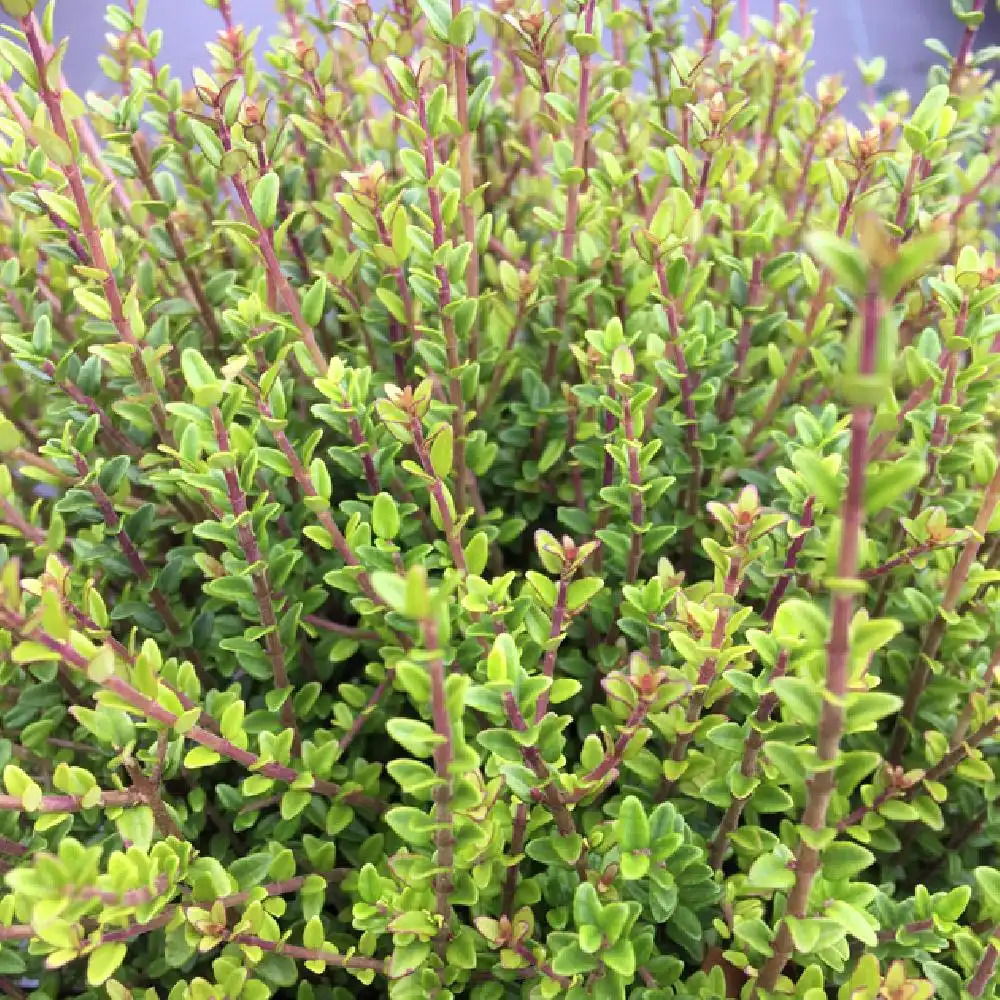
LONICERA nitida 'Scoop' Chèvrefeuille boule à feuilles de buis pépinières Lepage Bretagne
Lonicera nitida, commonly called box honeysuckle or boxleaf honeysuckle, is a dense, spreading, evergreen to semi-evergreen shrub which typically grows to 5-8' tall and to 4-7' wide. It is native to China. Tiny, glossy, ovate dark green leaves (to 1/2" long) are reminiscent of the leaves of some boxwoods.

Lonicera+nitida+Baggesen's+Gold++Chèvrefeuille+arbustif Chevrefeuille arbustif, Chevrefeuille
Lonicera nitida is a perennial woody evergreen member of the Lonicera genus in the family Caprifoliaceae. Practical Plants. This is an archived copy of this article, recovered after a server failure in January 2022. Some links may be broken, and editing is disabled. We are working to bring back full functionality.